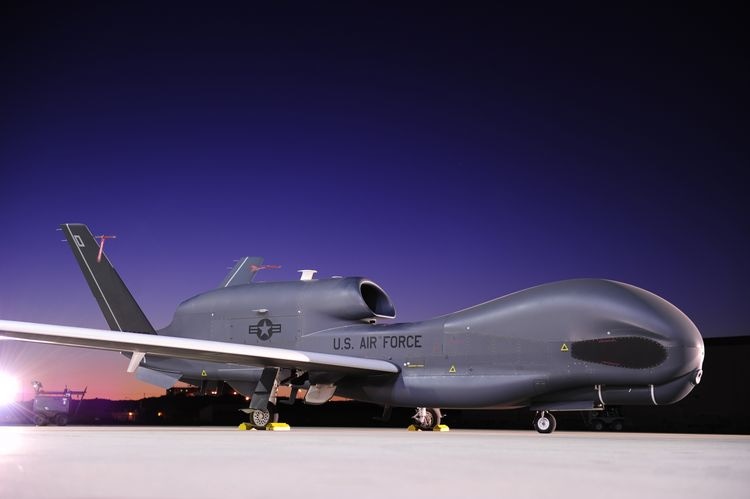Oct 13 2016
Northrop Grumman Corporation successfully flew an Optical Bar Camera broad-area synoptic sensor on an RQ-4 Global Hawk high altitude long endurance unmanned aircraft system (UAS), marking the first time the legacy U.S. Air Force camera has been flown on a high altitude unmanned aircraft. The Optical Bar Camera has provided panoramic and unalterable imagery for the warfighter, allies and governments.
 Global Hawk. Credit: Northrop Grumman Corporation
Global Hawk. Credit: Northrop Grumman Corporation
The successful flight is the second of three planned demonstrations of sensors previously unavailable on the Global Hawk. Northrop Grumman successfully flew a SYERS-2 intelligence gathering sensor in February of this year and plans to fly an MS-177 multi-spectral sensor later in 2016.
“The successful flight of the Optical Bar Camera is another significant step in the evolution of Global Hawk. It’s the result of our focus on increasing capability, reducing sustainment costs and fielding the open mission systems architecture that enables faster integration of cutting edge sensors at lower costs,” said Mick Jaggers, vice president and program manager, Global Hawk program, Northrop Grumman. “We’ve proved that our open mission systems architecture and our universal payload adapter work very well and enable Global Hawk to deliver new multi-mission capabilities to the United States Air Force.”
Payload integration is not new to Global Hawk. NASA has successfully integrated and flown more than 30 different information-gathering payloads on Global Hawk. Existing models of the U.S Air Force Global Hawk are capable of carrying an Enhanced Integrated Sensor Suite (EISS), Airborne Signals Intelligence Payload (ASIP) and Multi-Platform Radar Technology Insertion Program (MP-RTIP).